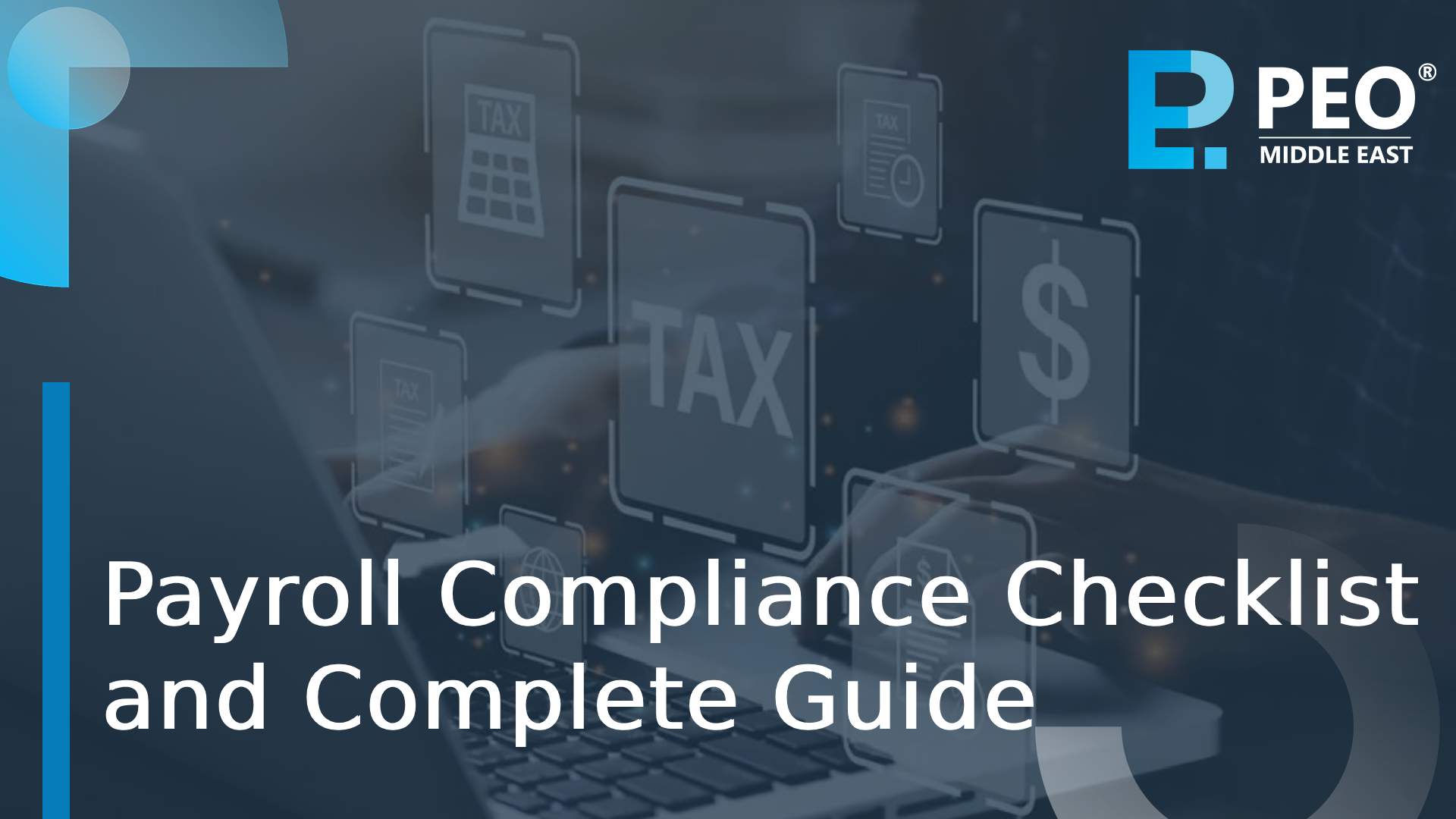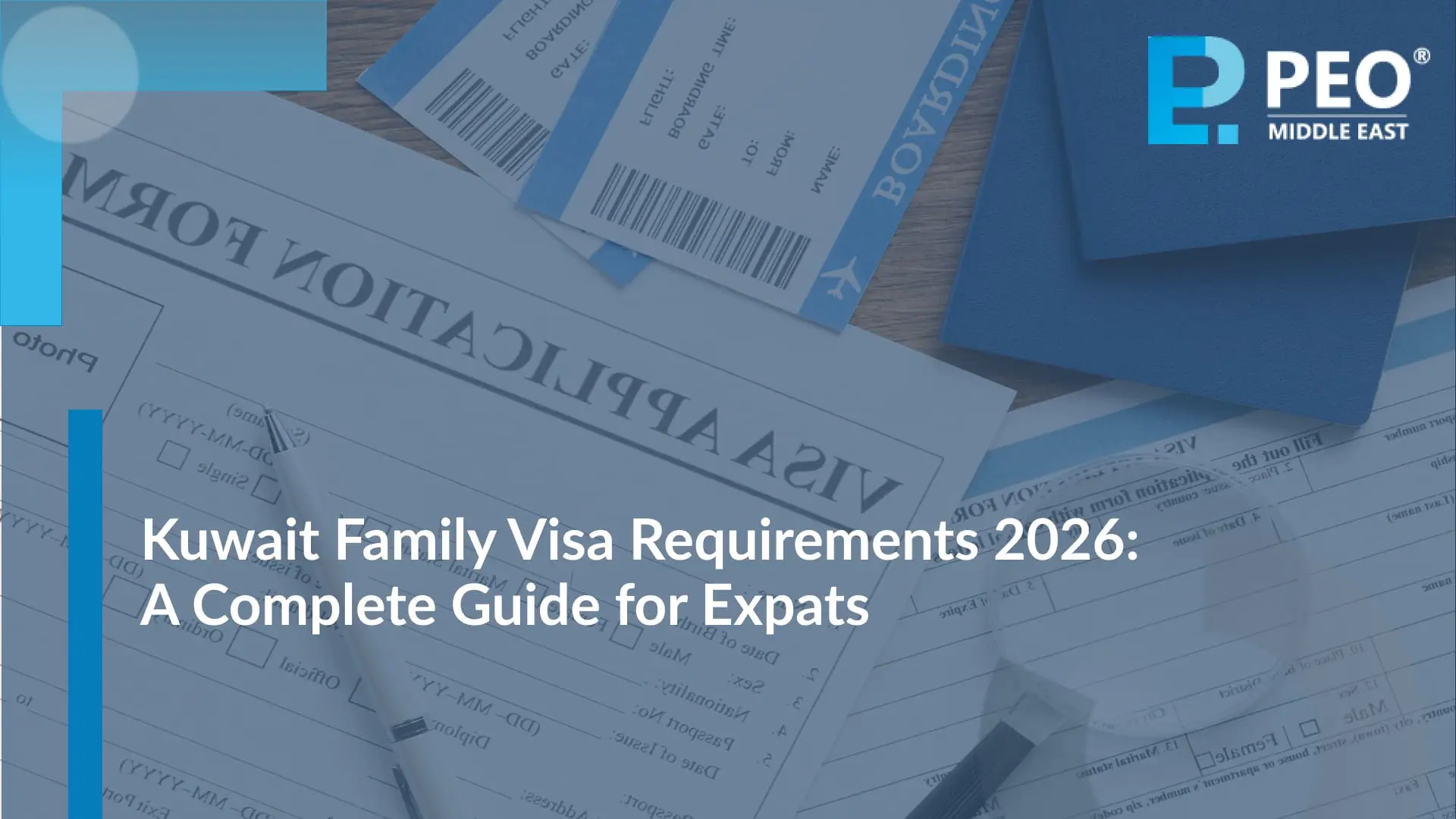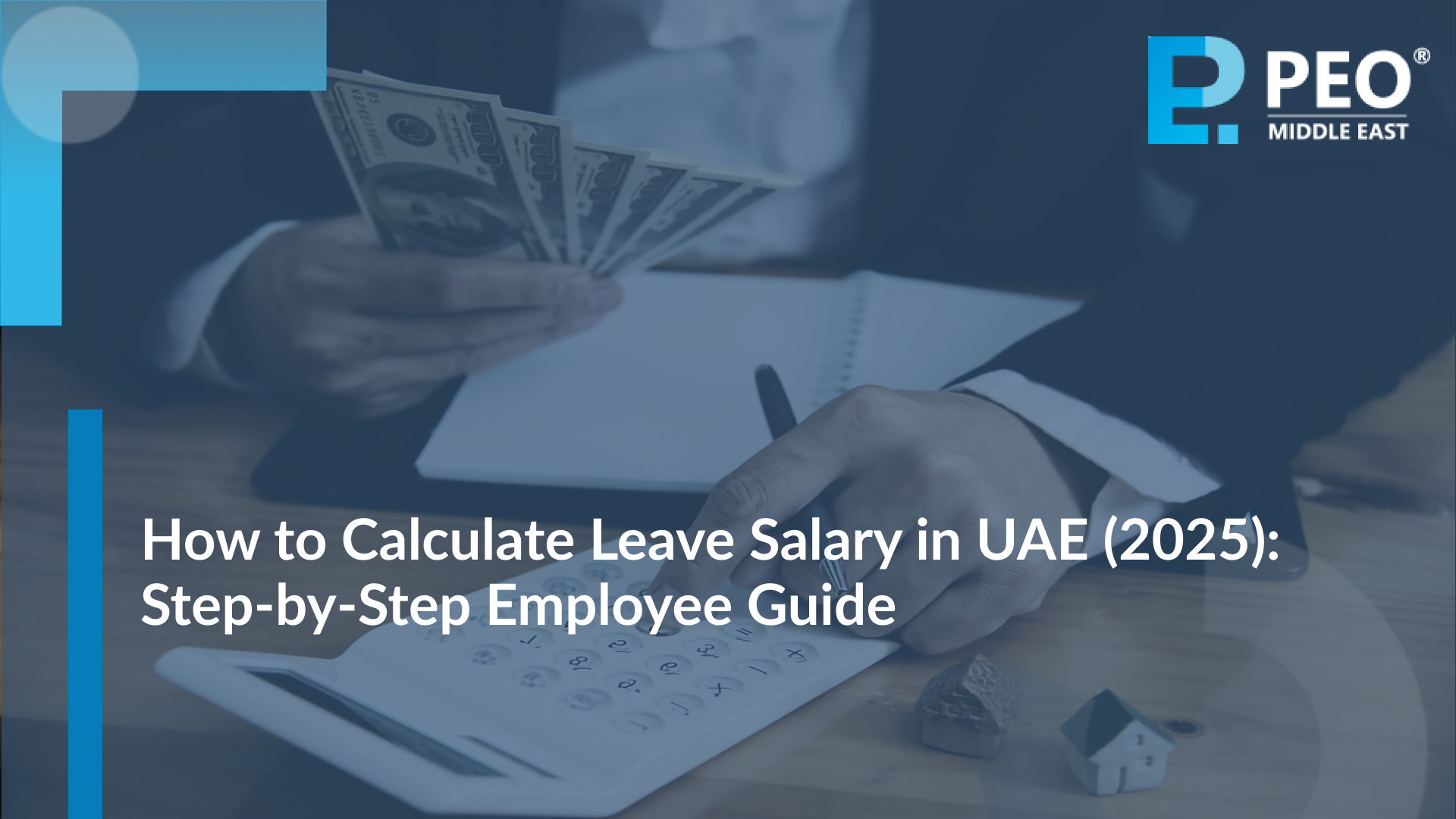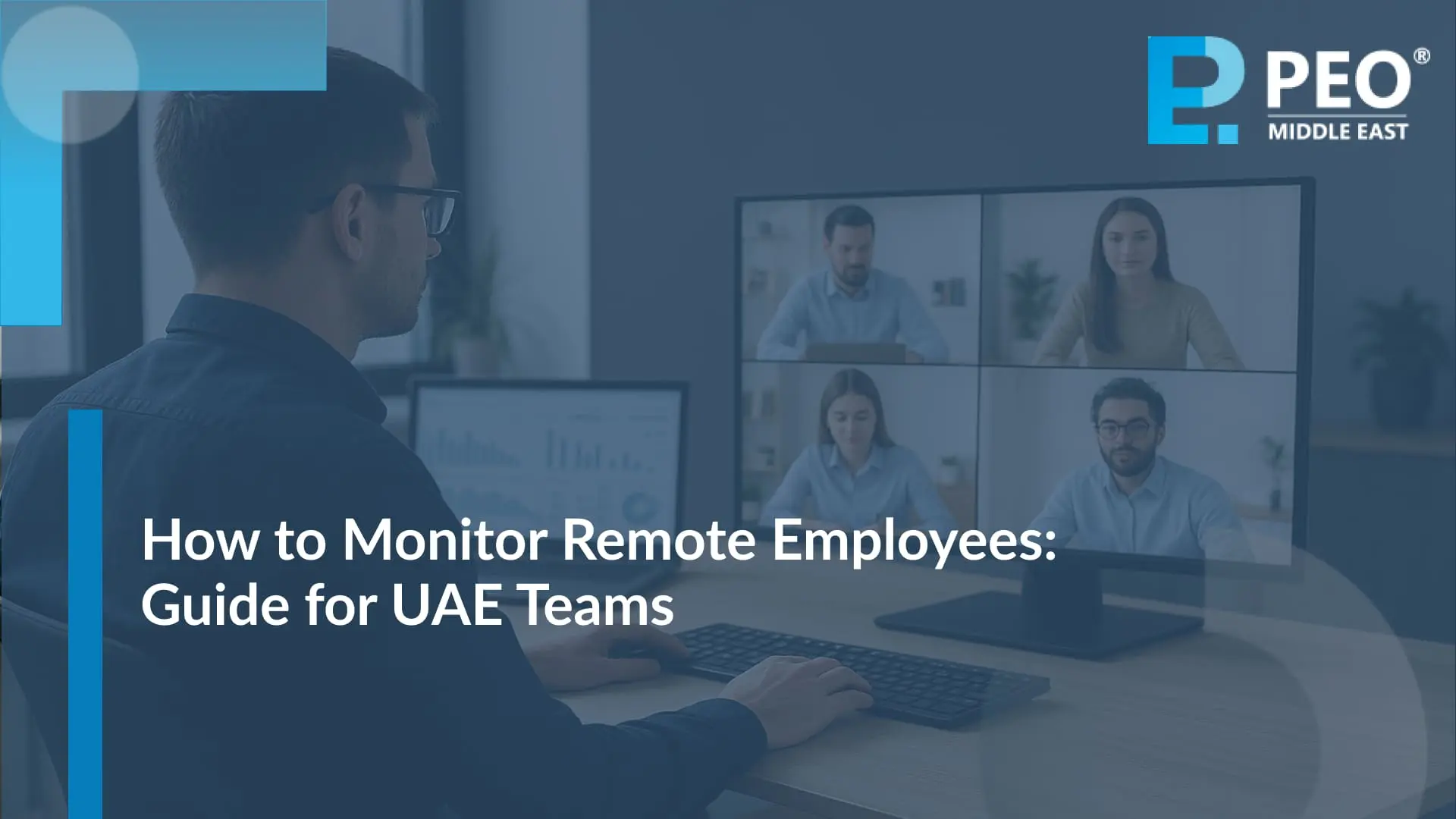One of the trickiest tasks your business may have is payroll, which must be completed accurately. In order to verify that your payroll procedure satisfies all standards promptly, using a payroll compliance checklist might be a valuable method. Additionally, it can assist you in comprehending how this procedure functions and how it has to be performed in Dubai.
In this article, we will be giving you a complete guide on the payroll compliance checklist. Additionally, we will give you a payroll checklist that will make your business more productive and compliant. You will also receive some advice on how to finish the payroll process correctly, without errors, and in accordance with the law. Let us start!
Key Takeaways
- If you are in the UAE, your company must provide payroll through the proper Wage Protection System.
- Correct worker classification is the first step in ensuring payroll compliance. Since it determines whether or not the company deducts taxes from employees’ paychecks.
- Employers must manage payroll compliance according to the Labor Law that mandates the employment relationship in the area.
- Laws governing payroll compliance are crucial because they ensure that workers are paid correctly and treated fairly.
What is payroll compliance?
The UAE is a melting pot of varying ethnicities from over 200 nations. All of whom contribute to the country’s prospering economy and progress. Understanding payroll legislation is crucial to ensuring correct wage payments and legal compliance as businesses flourish in this multicultural country.
A payroll compliance checklist will guarantee that you do not overlook anything. Therefore, be sure to heed the following advice:
- Use company calendar: Any process requires organization, but payroll processing requires it much more. Otherwise, it may be simple and difficult to lose track of significant dates. So that you exercise authority over your time, add a company calendar when establishing your payroll checklist.
- Check variable information: To explain the differences in compensation among your employees, you must use the variable data from the payroll process. Before processing the pay slips, it is crucial to precisely complete the leave payment computation, for instance. Your business will stay out of trouble with fines and non-compliance this way.
- Verify payroll elements: A further crucial recommendation is to list and compute all the components of the payroll process. The ultimate sum always varies each month as a result of factors like data variables (leave, perks, new hires, etc.). Then, figure up the total compensation, tax deductions, and so forth.
- Run draft reports: One of the most crucial items on your payroll checklist is this. Before processing your payroll, you must go through this process in order to find and correct any problems. Otherwise, there may be mistakes that will cost your company money.
- Check final reports: Check all the extra paperwork that will be necessary for paying employees as you complete this step. The responsible payroll specialist must make sure that the right sum applies to the salaries of the right employees.
Payroll Compliance Considerations Unique to Free Zones
You should be aware of two primary economic zones:
Mainland: You might need to enlist a UAE native partner who would hold 51% of the shares in order to launch a new firm or expand your existing one to the mainland. The advantage is that you receive a respectable amount of visas as a component of your quota. Allowing you to hire more workers for less money.
Free zones: The majority of companies want to grow in UAE-free zones. There are currently 45, and if you start a business in any of the free zones, you can control 100% of it. The disadvantage is that you may need to spend money purchasing or renting additional land in the free zone. Consequently, this can be expensive, and you may not have access to many visa quotas.
The fact that all corporate organizations must abide by the labor laws established by the government of the UAE and pay their staff members via the Wage Protection System (“WPS”) if they have registration on the mainland is a significant distinction between the two. WPS has not yet been accepted by all free zones. Therefore, each one may have its own set of rules and compliance criteria.
No matter which zone you are in, if you are paying wages through WPS, it is critical that you adhere to the deadlines. Hence, avoid delaying the payments because doing so could result in significant fines.
You could have to pay taxes according to where your company is based. Heavy fines and penalties may be imposed for failure to pay business taxes. Although accounting reports do not have to be sent in in the UAE, free-zone firms must present their audit annual accounts to the free-zone authorities as part of the procedure to renew their trade licenses.
Considerations For Payroll Compliance In The UAE
Payroll calculations in any foreign nation involve familiarity with the local laws, norms, and regulations. It can be a challenging process, and errors can lead to sanctions, fees, and reputational harm for the company.
In the UAE, it is crucial to show complete compliance with payroll regulations to ensure that employees obtain pay on time, in the correct currency, and that every deduction, allowances, bonuses, and perks fall into account.
Due to a lack of expertise and resources, many companies expanding to the UAE would rather outsource their payroll processing.
Your payroll service provider will be aware of the typical difficulties you will experience while expanding internationally into the UAE. Such as, language limitations, different currencies, and payroll regulations. In order to ensure that your payroll is correct and totally compliant, they will have an extensive understanding of the local payroll practices in that nation.
An essential component of running a company in the UAE is ensuring proper payroll. Payroll regulations in the nation must be in place. This, in order to establish a stable and positive work environment as well as solid legal standing. Here are a few main arguments emphasizing the significance of complying with payroll:
- Compliance: Payroll responsibilities must be in place. To avoid hefty penalties and fines that can harm a company’s reputation and impede its expansion. Businesses can protect their operations and prevent legal ramifications by adhering to the UAE’s labor laws and payroll rules.
- Satisfaction: Maintaining worker satisfaction and confidence requires making sure that benefits and pay to obtain pay on schedule and in compliance with the law. Compliant payroll procedures show a company’s dedication to its employees and aid in building a motivated, devoted team.
The accurate financial record-keeping that is a result of good payroll management is essential for fulfilling auditing and reporting requirements.
Working Hours
Before expanding into the UAE, there are a number of things you should understand regarding payroll procedures and compliance standards there. The good news is that while free zones provide tax exemptions for durations ranging from 15 to 50 years, enterprises located there are not subject to income taxes.
The main thing you should research is the labor regulations of the potential free zone. The entity in charge of the free zone may have a unique set of laws because the UAE’s labor laws do not apply there. Instead of you, they might be the ones “sponsoring” your staff. Oil and gas companies as well as foreign banks are not given the tax-free “courtesy”.
In the UAE, the standard workweek consists of 48 hours, or eight hours every day. You will need to pay your staff overtime after that. The formula for calculating overtime pay is straightforward: 125% of the employee’s hourly rate, or 150% if they must work between 9 p.m. to 4 a.m.
Businesses on the mainland zones might not be subject to the same regulations, however Friday and occasionally Saturday are off days. Despite the fact that working on Saturdays is usual.
Minimum Wage
Workers want to be compensated fairly for their experience and education when it pertains to employment. While some job responsibilities may pay more than others, professions that don’t demand a lot of skill might pay less.
Regardless, every worker ought to be paid on time and in accordance with their qualifications. A salary or minimum wage is the minimum contractual sum that an employee may be paid for their labor and is set by several nations.
This means that if an employer pays a worker below the legal minimum wage, they are breaking the law. It is important to understand that there is no minimum salary in the United Arab Emirates. Additionally, it’s critical to remember that the basic wage and the minimum wage for the area are not the same.
Rates of pay must be set between employers and employees because there is no minimum salary in the United Arab Emirates.
Despite the prevalent misperception that there exists in Dubai, the UAE’s labor laws do not reference a minimum salary. Furthermore, the statute makes no reference to a UAE basic pay percentage.
Although it may at first seem to be a disadvantage, the UAE takes its nationals’ working circumstances carefully. As a result, the law stipulates that the employee’s pay must be sufficient to cover their basic needs.
As a result, even if Dubai may not have a minimum wage for a certain occupation, an individual may opt, in accordance with their classification, to reject anything less than the following sum:
- University graduates should not receive pay below AED 12,000 every month.
- No technician with skill levels should make under seven thousand AED per month. Also, no qualified employee should earn under five thousand AED.
Paid Leave
- Annual leave: Employees have the right to a month of paid yearly leave after a year of full-time employment. After six months of employment, employees are eligible for two days of paid time off each month. Article 29, section 8 of the UAE Labor Law states that a worker cannot be continually employed by a company for 2years without receiving annual leave. Additionally, part-time employees can take yearly leave, with the number of days granted according to the working hours outlined in their employment agreement.
- Rest days: Private sector workers have the option of at least a full day of paid break per week under Article 21 of the Labor Law. Likewise, employers are free to raise the amount of weekly rest days.
- Public holidays: A worker has a right to official leave on public holidays with full pay under Article 28. Employees should receive payment for working on their days off if they have to go to work on public holidays.
- Sick leave: Employees who have successfully completed their probationary period have the right to a maximum of 90 days of sick leave annually. The 90 days of sick leave may be taken continuously or intermittently, and the following payment schedule is used:
- The first 15 days will be paid in full.
- 30 days’ worth of pay at half.
- The last 45 days are without compensation.
- Maternal leave: Moms who work in the private sector of the UAE have a right to a 60-day maternity leave, which includes:
- 45-day leave with pay.
- Half pay for the first 15 days.
- Employees have up to 30 days before their due date to apply.
- Student leave: Higher education students in the UAE are able to take a compensated 10-day leave each year to complete their exams.
Social Security
Only UAE citizens can access social security; foreigners are not eligible. You, as the running business, would be required to provide a 12.5% contribution to the qualified employees’ pension plan, and the government might chip in with a 2.5% contribution.
How PEO Middleast will assist you with payroll compliance
Compared to many other nations, extending to the UAE is rather simple and quick. Your company can be established in a matter of weeks. Additionally, there are no duties, allowing you to allocate more funds to business expansion and hiring new employees.
However, in-depth local research may be necessary to grasp the peculiarities and payroll procedures used by mainland enterprises and free zones in the UAE. By collaborating with businesses that provide payroll compliance services in the UAE, you can avoid having to learn about UAE payroll compliance difficulties the hard way.
In the United Arab Emirates, there are three major forms of payroll services: outsourcing, programs, and manual processing. It is entirely up to you to weigh all of the options because each one has advantages and disadvantages. Nevertheless, outsourcing allows you to do away with many of the stages involved in payroll processing.
With PEO Middleast, you can obtain the support you need to suffice employee payroll. Let us handle your payroll needs in the UAE. Get in touch with us via email at contact@peomiddleast.com. Also, you can call our team at +971 43 316 688.









